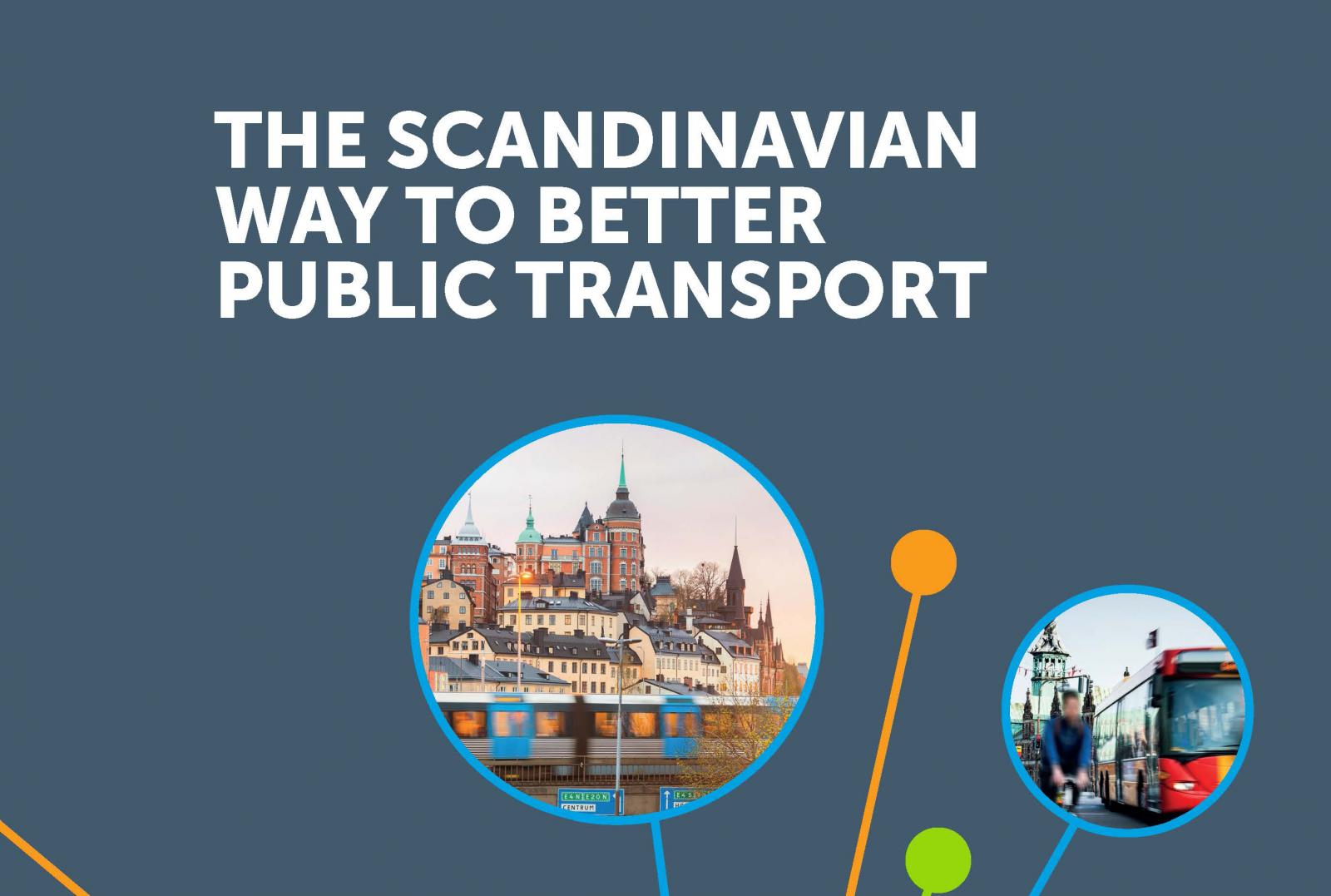New report shows how UK can follow the Scandinavian way to better transport

- Report finds ‘innovation, devolution and franchising is getting results for passengers and cities’
A new report, ‘The Scandinavian Way to Better Public Transport’, published today by the Urban Transport Group, shows how transport authorities in three Scandinavian countries (Sweden, Denmark and Norway) are using devolved powers to transform public transport for the better - and sets out the lessons that the UK could learn.
The report finds that the key characteristics of Scandinavian public transport include:
- high frequency services with high quality vehicles with good off peak provision
- smart and simple multi-modal ticketing (with multi-modal fares delivering excellent value for money in comparison to incomes)
- high levels of public transport use (with much higher bus ridership per head than in the UK)
- ambitious plans for public transport’s role in reducing carbon and toxic emissions through low or zero emission bus fleets and modal shift from other modes
- public transport strategies that align with wider national and sub-national goals for economic development, land use planning and social cohesion
- significant innovation including on vehicle technologies, smart ticketing and
- customer service
- levels of revenue support for bus services which underpin a high quality of service (with higher funding per head and per trip on bus than in UK city regions although in Swedish cities funding per bus trip is lower)
Striking examples of Scandinavian success and ambition on public transport identified in the report include:
- A doubling of public transport patronage since 2000 in the Swedish region of Skåne (which includes Malmo) following major investment in the network
- Investment in Metro and suburban rail services a key part of Copenhagen’s plan to be the first city in the world to be CO2 free by 2025
- Between 28 and 38% of tickets sold in the Oslo/Akershus urban area are by mobile phone
The report concludes:
‘Scandinavian countries have taken this approach because there is a political and public consensus that public transport is a public service. A public service that has a key role to play in tacking road congestion, reducing greenhouse gases and air pollution. A public service that also spreads the benefits of economic growth and promotes social cohesion through ensuring better connectivity within and between communities – including linking peripheral areas with the main towns and cities that are driving the wider economy.’
Tobyn Hughes, Managing Director of Nexus and chair of the Urban Transport Group, said:
“This report shows how the Scandinavians put a high value on making their city regions sustainable, liveable and attractive places in which to live and invest. This has led them to promote active travel and to invest in smart, green and high quality public transport networks. In doing so they are moving quickly towards new smart ways of paying for access to transport, phasing out diesel buses to improve air quality, and investing heavily in more and better tram, train and bus services. They are able to do this because by and large they have the powers they need to plan and develop their local transport networks. The results are cities high up global league tables as places where people want to live and work in, high levels of public transport use and in some cities in particular cycle use that is off the scale in comparison to the UK. The UK has embraced all things Scandi in recent years – from Scandi Noir to IKEA – perhaps it’s also time we embraced their approach to transport too.”
Report author Professor Tom Rye of Napier University said:
“This is the most comprehensive study into the Scandinavian models of transport policy ever undertaken in this country. The data my team and I have gathered, assessed and put into context for UK policy makers shows a clear road map for improvement in the way the UK transport service providers currently deliver urban public transport.”
Tobyn Hughes added:
“With the Buses Act 2017 providing new powers on bus franchising the report also takes an in depth look at the experience of franchising of public transport networks in Sweden, Norway and Denmark. The report shows that franchising is the norm for bus services in Scandinavia and has been instrumental to the delivery of integrated, high quality and successful bus services in an efficient way. It also shows the many different approaches to franchising that different transport authorities have taken depending on local circumstances and aspirations, and the lessons that can be learnt. This report follows on from our ‘Devolution, Integration and Franchising: Local Public Transport in the Netherlands’ report on the experience of franchising in the Netherlands and our franchising masterclass featuring Jersey, Australia and the Netherlands which took place in London in June this year. These initiatives shows how as a network we seek to ensure that are members are well informed on best practice as they consider how to make best use of the new powers in the legislation.”
The Urban Transport Group report was written by Professor Tom Rye of the Transport Research Institute at Edinburgh Napier University with research support from colleagues from Lund University, K2 Swedish National Public Transport Research and Knowledge Centre, the Inno-V consultancy (Netherlands) and Urbanet (Norway).
Notes to editors:
Professor Tom Rye is available for interview; please contact James Bates at the Urban Transport Group on 0113 251 7204, 07810 304142 or james.bates@urbantransportgroup.org to arrange an interview.
UTG will be running a ‘Scandi week’ on twitter highlighting some of the innovative, unique and interesting approaches to transport that can be found there.

